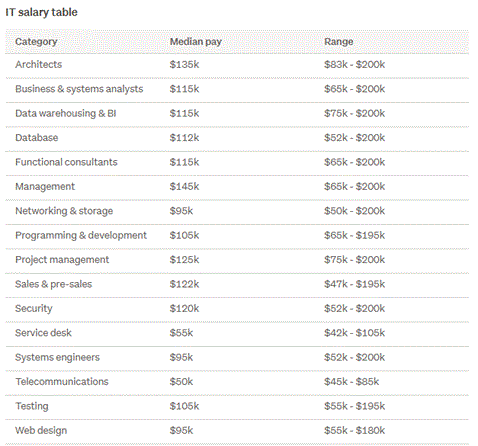名师指导四六级基础备考:核心语法(15)
2021-10-11 20:32:15 · 作者:编辑部
新东方在线英语四六级词汇栏目,为您提供2021年大学英语四级词汇表、英语四级单词表、英语四级词汇下载、英语四级高频词汇、英语四级核心词汇,英语四级大纲词汇下载等相关信息供大家参考学习。
最后冲刺
★ 2010年四六级备考手册:听力篇(更新中…)
★ 2010年四六级备考手册:阅读篇(更新中…)
★ 2010年四六级备考手册:写作篇(更新中…)
考前必备
★ 四级写作高分工具:新概念3常见词汇句法
★ 名师指导6月六级最后冲刺备考方法
★ 四六级名师传授绝技:5个词拿下快速阅读
★ 2010年6月六级听力考试场景词汇精要
★ 六级听力长对话短期突破:从真题入手

新东方在线2010年6月四六级晒分龙虎榜公布
翻译下列句子:
1)下月这个时候,我们将呆在南京了。
This time next month we shall be staying in Nanjing.
2)在今天下午的会议上,你们讨论这个计划吗?
Will you be discussing the plan at the meeting this afternoon?
3)你会见到我的兄弟吗?
Will you be seeing my brother?
4)下学期你教我们吗?
Will you be teaching us next term?
5)你来的时候,我们将在开会。
When you come we shall be having a meeting.
6)下周这个时候,我们将在考试。
This time next week we shall be taking our exams.
11、过去将来时
(1) 由should/would + 动词原形构成。第一人称用should; 第二、三人称用would。美国英语所有人称一律用would. should/would 的简略形式为’d, 如I’d, you’d; would not 和should not的简略形式分别为wouldn’t 和shouldn’t.
(2)过去将来时表示从过去某时间看将要发生的事情,多用在宾语从句中。还可以表示过去的倾向或过去经常发生的事情。如:
They asked me if I would go to Guangzhou soon. 他们问我是否很快要去广州。
She told me she would come again next week. 她和我说她下周还来。
I told him to leave immediately, but he wouldn’t. 我告诉他马上离开,但他不。
He’d play the violin when he was in low spirits. 他情绪低落的时候,就拉小提琴。
When I was in college, I would find a part-time job during the summer holidays every year to earn my tuition. 我上大学的时候,每年暑假都找份临时工挣学费。
(3)其他表示过去将来时的结构:
1)were/was going to + 动词原形,表示过去的安排、打算或确信某事会发生,多用于口语。如:
I told her I was going to see her that afternoon. 我告诉她我那天下午要去看她。
I was sure (that) they were going to do that. 我确信他们要做那件事。
2)were/was to + 动词原形,表示安排,命令或后来将要发生的事。如:
He didn’t know he was to become famous later on. 他不知道以后他会出名。
They were to receive salaries from the government. 他们将接受政府的工资。
She and I were to meet at an agreed place. 她和我将在一个约定的地方见面。
3)were/was about to + 动词原形,表示正要、即将发生的事。如:
Mrs. Brown was about to begin, but Jennie spoke first. 布朗夫人刚要开始,但是珍妮先说话了。
He was about to say something more, but then checked himself. 他正要再说点什么,却又打住了。
He waited until she was about to leave. 他一直等到她即将离开。
12、将来完成时
(1)构成:shall/will + have + 过去分词
(2)用法:将来完成时动词主要表示在将来的某一时刻或将来的某一时刻之前完成的动作,这一动作也可能继续进行。例如:
By seven o’clock this afternoon we shall have got to Shanghai if the train keeps good line. 如果火车运行正常,我们今天下午七点就到上海了。
Before bedtime Xiao Ming will have completed his work. 到上床睡觉的时候,小明会做完他的工作(或作业)。
By February next year this foreign expert will have been here on this job for five years. 到明年二月,这个外国专家在这儿做这项工作就满五年了。
By Sept. 2008 Beijing will have held/hosted the Olympic Games. 到2008年9月,北京将举行完了奥运会。

四级历年真题(2001-2009)
2001年1月 | 2001年6月 | 2002年1月 | 2002年6月 | 2003年1月 |
2003年6月 | 2003年9月 | 2004年1月 | 2004年6月 | 2005年1月 |
2005年6月 | 2005年12月 | 2006年6月 | 2006年12月 | 2007年6月 |
2007年12月 | 2008年6月 | 2008年12月 | 2009年6月 | 2009年12月 |
六级历年真题(2001-2009)
2001年1月 | 2001年6月 | 2002年1月 | 2002年6月 | 2003年1月 |
2003年6月 | 2003年9月 | 2004年1月 | 2004年6月 | 2005年1月 |
2005年6月 | 2005年12月 | 2006年6月 | 2006年12月 | 2007年6月 |
2007年12月 | 2008年6月 | 2008年12月 | 2009年6月 | 2009年12月 |
【本文为找大学网转载,文章版权归原作者及原出处所有。文章系作者个人观点,不代表大学生在线立场,转载请联系原作者及原出处获得授权。有任何疑问都请联系(kf@zhaodaxue.cn)】
- 相关阅读
TOPS
- 日排行/
- 周排行/
- 原创
- 日排行/
- 周排行/
- 原创
- 1 无锡学院2022年6月英语六级准考证打印入口|时间:6月1日
- 2 2022年6月英语四级作文热门话题及范文:教育不公平
- 3 泰州学院2022年6月英语六级准考证打印入口|时间:6月1日
- 4 吉林四级考试时间2022年上半年
- 5 2022年6月英语四级作文热门话题及范文:网络游戏
- 6 宿迁学院2022年6月英语六级准考证打印入口|时间:6月1日
- 7 2022年6月英语四级作文热门话题及范文:电力短缺
- 8 苏州城市学院2022年6月英语六级准考证打印入口|时间:6月1日
- 9 2022年6月英语四级作文热门话题及范文:手机的利弊
- 10 常熟理工学院2022年6月英语六级准考证打印入口|时间:6月1日







